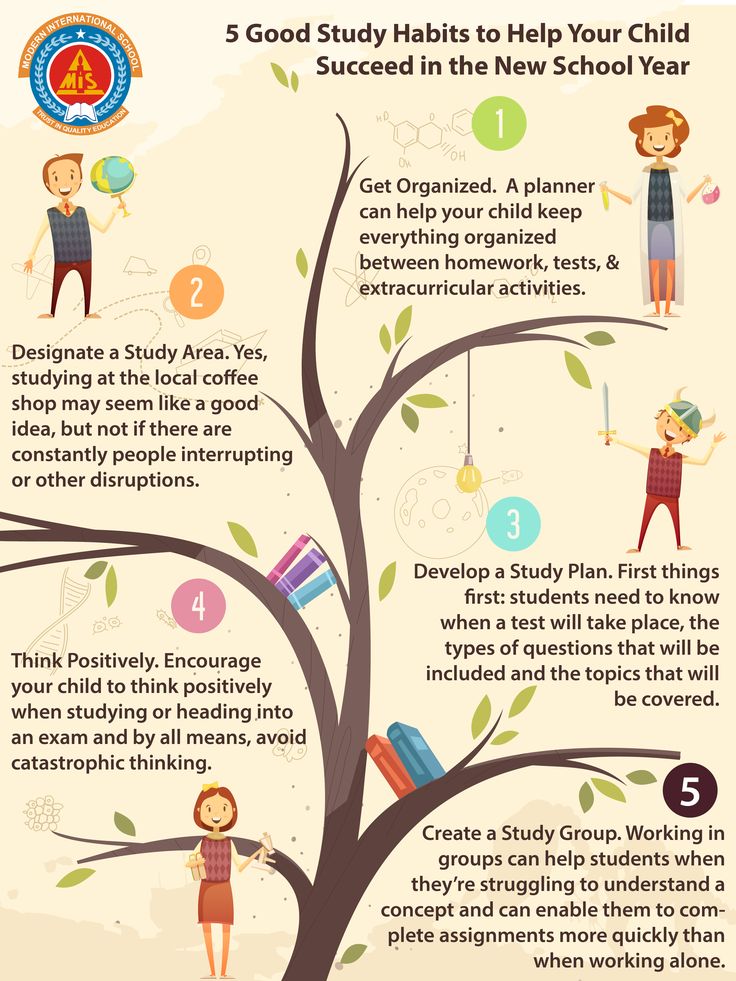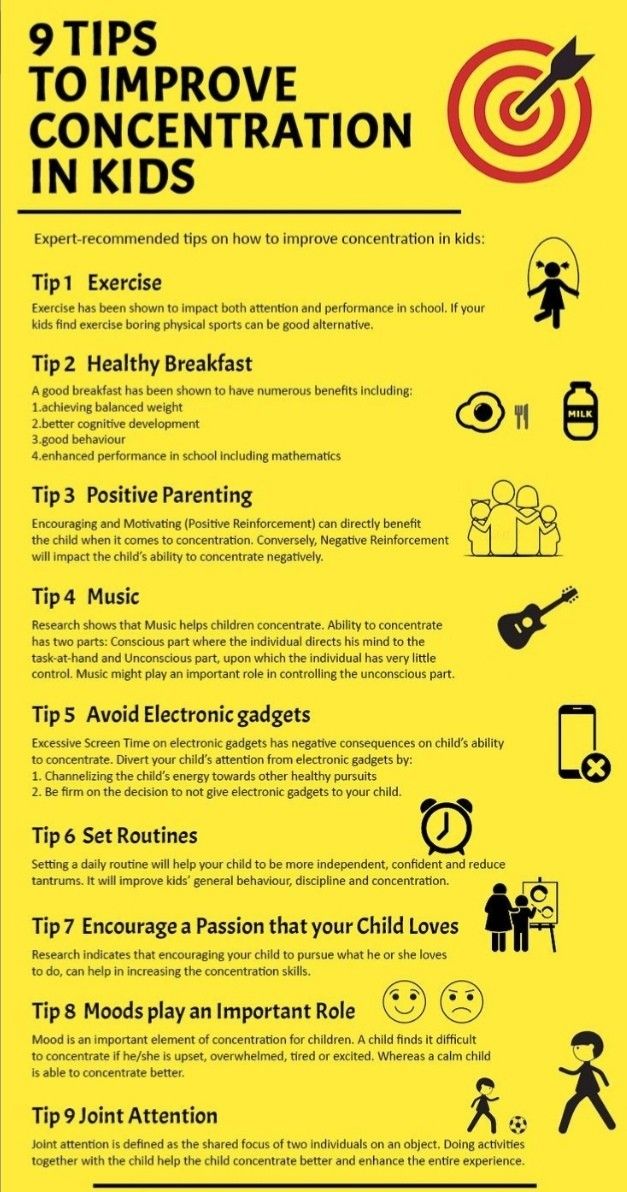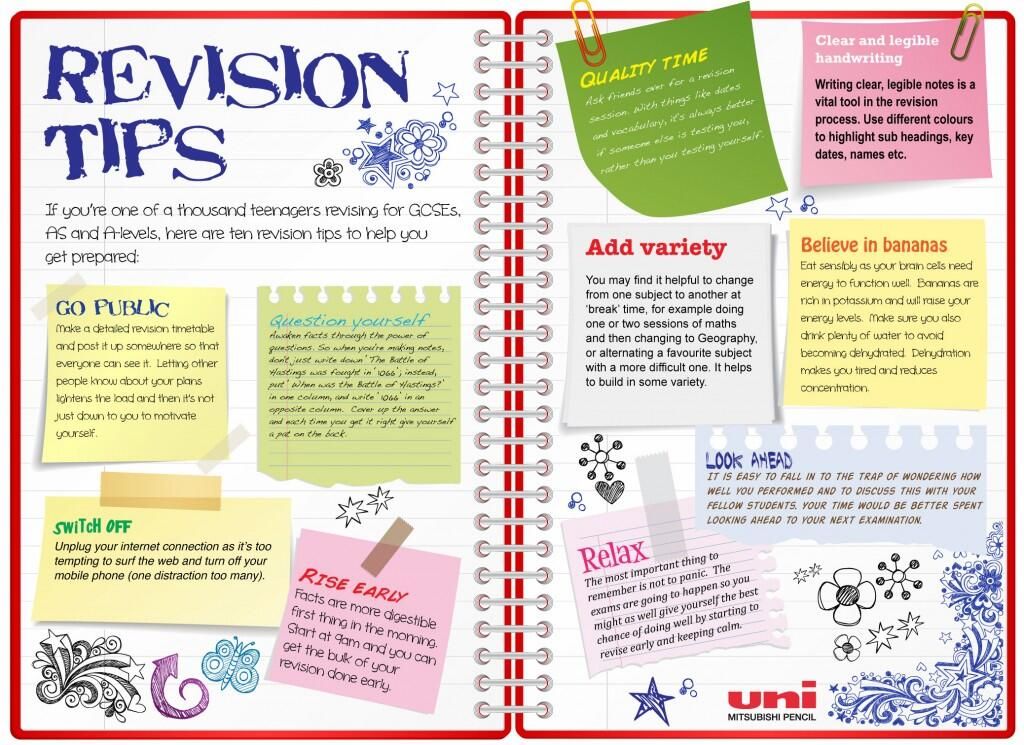How to help my child study for a test
7 Tips for Parents to Help Your Child Develop Effective Study Skills
Wednesday, January 12, 2022
Here’s the situation: Your child likes school. They enjoy their classes, teachers, and fellow students. They do their homework every night. They’re trying hard—but that effort and enthusiasm just isn’t translating to the kind of academic gains and grades you both want to see. If this sounds familiar to you, the key to helping your child crack the code on learning may be to focus on building some effective study skills.
Success in the classroom doesn’t come from any single thing—it’s about the right mix of attitude, habits, and effort. Strong study skills are an important ingredient in this recipe, and they’re very much learned behavior. “Straight-A students are not born—they're made,” explains Katie O’Brien and Hunter Maats, co-authors of The Straight-A Conspiracy, who have tutored hundreds of students and were collaborators on this Princeton Review study. “Every student in America is capable of getting the grades he or she wants without all the stress. Managing your emotions, putting away the distractions, and creating a straightforward study plan that makes learning faster and more fun are far easier than most students and parents believe them to be.”
So, as a parent, how can you help your child develop the study skills they need to achieve academic success—and see benefits beyond the classroom as well? Here’s seven tips to get started!
1. Create a designated study space for your students.Does your child have their own desk or workspace in an area of your home that is conducive to focused studying? Ask yourself if it’s well-lit and away from other distractions. Keep helpful study supplies on hand in this area, like colorful post-its, a variety of pens and pencils, highlighters, and scratch paper. Encourage your child to take ownership over the area by giving them freedom to decorate, and teach them to neaten up and organize their desk each night so they’re ready to get to work when it comes time for the next study session.
Time management is an incredibly important aspect of effective study skills. So, ensure your student knows how to keep a homework planner. Have them write down important due dates for homework and projects, especially if their teacher makes these dates known far in advance. Then, the key is to stay on top of these assignments. Prepare for important tests by helping your child break down the content and make a schedule for reviewing the material in the days leading up to the test. Break down big projects similarly by determining smaller milestones and working with your child to make a schedule for when they will have these components complete. This can offset cramming and procrastination (and build confidence in the process) by making their workload feel more manageable.
3. Take effective notes.Have you heard of Cornell Notes? Utilizing this classic note-taking system can help your child process information taught in class and truly retain what they’ve learned. There are even studies showing that writing notes out by hand results in better retention than not taking any notes or using a laptop. Teaching your child to use active reading strategies—like taking notes or highlighting key themes and passages—is also very helpful for retention.
There are even studies showing that writing notes out by hand results in better retention than not taking any notes or using a laptop. Teaching your child to use active reading strategies—like taking notes or highlighting key themes and passages—is also very helpful for retention.
Simply reviewing content before a test isn’t necessarily the best method to ensure your child is prepared for an upcoming test. Instead, encourage them to try more interactive approaches, like completing practice tests or using flash cards. Asking your child review questions and having them provide short essay-style explanations aloud can also be a great strategy to make sure they truly understand the material.
5. Avoid cramming.Studying a little bit of a subject every day is much better for long-term retention than studying for a longer period of time a single day. Help your student structure a study schedule that will allow them to space out their practice on different subjects—as little as 10 minutes of practice a day can help! It’s also important to encourage your student to break up their studying with smart breaks. Taking a 15-minute break once every hour can work wonders on keeping them focused and productive.
Taking a 15-minute break once every hour can work wonders on keeping them focused and productive.
Perhaps your student is struggling with understanding a specific lesson in a particular subject or doesn’t quite understand the night’s homework assignment. When this is the case (and it happens to everyone at some point or another) asking for help is key. Teach your student how to bring up challenges early with a teacher and ask for help—and don’t be afraid to bring up concerns with their teacher yourself either. Teaching your child how to build effective working relationships with other students and asking their peers for help is another important lesson in asking for, receiving, and offering support.
7. Avoid distraction.Teach your student how to put their computer away and turn off all other devices that may serve as a form of distraction while they’re studying. Multi-tasking also takes away from learning, so encourage your child to focus on a single subject for a sustained period of time before moving onto another subject. And above all, ensure that your child has healthy sleeping and eating habits in order to maximize their focus and make the most of time spent studying.
And above all, ensure that your child has healthy sleeping and eating habits in order to maximize their focus and make the most of time spent studying.
There’s no shortage of strategies for parents to help your child build the solid study skills necessary for success in the classroom. For more tips, check out these great resources:
- 8 Ways to Help Kids Ace Tests from Parents Magazine
- 7 Tips for Improving Your Child’s Homework and Study Skills from Understood
- Homework and Study Habits: Tips for Kids and Teenagers from the Child Development Institute
Looking for a tool to help your children practice grade-appropriate skills in math, ELA, science, and social studies as they prepare for midterms or end-of-semester exams? Check out our Family Resource hub!
This post was originally published September 2017 by Elaine Ho and has been updated.
Parent Involvement
Test Preparation
McKenna Wierman
McKenna Wierman studied Journalism at the University of Mississippi, and has worked with Edmentum since June 2016. She currently serves as a Digital Marketing Specialist, and believes that empowered teachers are the key to successful students.
She currently serves as a Digital Marketing Specialist, and believes that empowered teachers are the key to successful students.
Study Skills: Preparing Kids To Ace Any Test
We often expect kids to study and pass exams even though no one has taught them how to study. This was true for my own kids. My son was in first grade when he first started taking spelling tests.
I would tell him to go study and after twenty minutes, I would give him a practice test. To him, studying meant staring at his spelling words for a few minutes before exclaiming, “I’m ready!” I would get two words into the practice test before we had to stop the test. He struggled to remember the words and it was evident that whatever “studying” he did, wasn’t helping. That’s when it dawned on me that I needed to teach him effective study skills.
Below are some study skills that helped my son become better at studying and taking tests. Hopefully you find these strategies helpful as well.
- Pay attention in class. It’s important that students pay attention in class because that’s where they will learn a bulk of the information found on their tests. Kids need to focus and pay attention so that they can take quality notes in class. If their notes are inaccurate or lacking details, studying might not lead to the outcome they desire.
- Be organized. The more organized kids are leading up to a test, the more likely it is that they will pass. However, many kids are clueless when it comes to organization. For example, my kids’ idea of organization was to shove all their old assignments in the bottom of their backpack. Organization is a skill kids must be taught. Teaching kids how to take notes, how to use a planner to keep track of assignments, and how to organize old handouts are some ways kids can get themselves more organized for success.
- Set aside time to study.
 Today’s kids are busy and hardly have time for themselves. It’s important that they learn to set aside sufficient time for studying. This means kids might need to prepare for a test a week or two before it is scheduled to be given.
Today’s kids are busy and hardly have time for themselves. It’s important that they learn to set aside sufficient time for studying. This means kids might need to prepare for a test a week or two before it is scheduled to be given.
- Dedicate a space to studying. It’s hard to process complex information if your favorite song is blaring in the background. This is why it’s important that children study in a calm and relaxed environment. Make sure children’s study spaces are quiet, well lit, free of distractions (ex, phone, tablet, etc.), and interruptions.
- Prioritize study material. Sometimes kids have a lot of information to sift through as they prepare for a test. It helps if a student knows what information they should spend the most time studying and what areas they are already strong in. Prioritizing study materials allow students to determine the best way to use their study time in order to get optimal results.

- Develop effective time management skills. There are only so many hours in the day and kids must divide that time between school and extracurricular activities. In order to do well in school, children need to manage their time wisely from the beginning of the school year until the last day of class. Check out these great time management ideas for kids.
- Develop effective study methods. Study methods are the techniques students use to help them learn, process, and retain information. Some common study methods include note-taking, using flash cards, highlighting passages, taking practice tests, etc. Studying is a lot easier if you have a plan for how to do it and what methods you will use.
- Create a study plan. Many times when kids go to study they don’t have a clue where to begin and waste time procrastinating. Creating a study plan will help kids use their study time wisely.
 Below is an example of a study planning form kids can use to prepare for a test.
Below is an example of a study planning form kids can use to prepare for a test.
- Practice self-care. It’s important that kids take care of their minds and bodies. This helps them to stay alert and focused. In order for kids to perform at peak levels, they need to eat nutritious meals, engage in physical activity, and get adequate rest on a regular basis.
- Think positively. Stinkin’ Thinkin,’ or negative self-talk, can break a child’s self-confidence. We must encourage children to monitor the things they say to themselves about who they are and what they can do. When children believe that they can’t accomplish something, it often becomes a self-fulfilling prophecy. However, when they learn think positively, they approach challenges with confidence instead of with fear.
I hope you find these study skills tips helpful. If you do, you might also like this resource designed to help kids develop their study skills.
This study skills journal is a must have for any child’s study toolkit. Here’s what’s included in this awesome resource!
What study skills do you teach kids to help them prepare for a test? Feel free to share your tips in the comments below.
How to help a child decide on a profession?
Perhaps a key component of interests, earnings, future environment for years to come and much more. It's about the work of a lifetime. How to choose a profession for a child?
How can a child choose a profession?What influences the choice of profession?
First, I propose to determine the factors on which the choice of a student may depend:
Talents, abilities, inclinations and interests
Putting this at the forefront when choosing a profession is absolutely right.
For example, I met people who said: “Since childhood, I have been shy / I don’t really like to communicate with unfamiliar people, that’s why I became an accountant / personnel officer / economist!”. They are completely satisfied with their specialty, but in choosing it they were guided by only one of their character traits (although, perhaps, the most important one).
Demand for the profession
A very important parameter in our time - for example, no one heard about the professions "targetologist" and "smmschik" 5 years ago. Because they just didn't exist! It is important to take into account not only the prestige of the profession, but also its prospects in the market in the near future.
The “Atlas of new professions” and constant immersion in the realities of the future labor market in the same social networks will help you choose a profession.
Financial prospects
It is definitely not worth putting the value of future earnings in priority. But it doesn't need to be neglected either.
But it doesn't need to be neglected either.
These are the three most important things to consider when helping a child decide on a career choice. But how much time and effort do you need to cover them all and not make a mistake! But a mistake can be very costly.
Thus, the interests and tastes of a child, especially in adolescence, change greatly. Today he likes sports, and tomorrow he wants to write books or study nature. Or at first he liked writing programs, but now he's tired of it. And the most common option is when the child does not know what he wants at all. In all these cases, parents can impose on him some specialty that seems promising for them. And they can be understood - the child must be taught something so that he can earn his living.
But the price of such a tough decision can often be the misfortune of the children. If the child is not interested in learning, he will simply drop out of high school or college. And this is a direct path to unemployment, depression and other problems. So is it worth putting pressure on the child and making a choice for him?
So is it worth putting pressure on the child and making a choice for him?
Certainly not. The best thing is to give him a chance to choose his life's work on his own by offering to discuss the choice with professionals. For example, you can offer him a career guidance test - which will be analyzed and commented on by specialists. Such a test is also carried out at MAXIMUM Education, and completely free . Our experts will evaluate the results of your child and offer him several directions in which he can develop. We will also tell you in which universities or colleges you can get the right education and what subjects you need to know “excellently” for state and entrance exams. So if you want your child to have a happy future, come to us for a free consultation!
Advice from loved ones and recommendations from relatives
The former include classmates' phrases like “Let's become a lawyer together, it's more interesting together!”, and the latter include well-reasoned recommendations and tips from parents. And if calls to act "for the company" should not be taken seriously at all (only if the children are not identical copies of each other!), Then, of course, you should heed the advice of relatives. Their opinion is authoritative and important. But still, with the final choice, one should not perceive it as the ultimate truth.
And if calls to act "for the company" should not be taken seriously at all (only if the children are not identical copies of each other!), Then, of course, you should heed the advice of relatives. Their opinion is authoritative and important. But still, with the final choice, one should not perceive it as the ultimate truth.
How to help a child decide on a profession? 4 tips
1. Start by identifying talents and interests
Even for those to whom they seem obvious, I advise you not to skip this point - the exercise can reveal new unexpected sides or better reveal existing ones.
To do this, you can use the following scheme: take a piece of paper and ask the child to write answers to the question "What do I like?". It is necessary to write not only what the child likes to do but that and just likes. It could be the rain or the neighbor's dog. But even such small details can give you a hint and help the puzzle to come together. Who knows, maybe your child is a future meteorologist or veterinarian 😊
2.
 Use the list of referrals
Use the list of referrals Using the list of things your child loves, try to imagine in which direction he could apply it. Then you can take individual specialties and project the information received on them:
- professions related to exact sciences: physics, chemistry, mathematics;
- creative professions: photographer, designer, restorer, composer;
- social and humanitarian orientation: these are professions in the field of tourism, and political, and philosophical, and many others;
- humanitarian: teacher, journalist, linguist;
- military sports professions: military and police officers, coaches;
- IT and digital focus: from creating programs to promoting websites.
3. Expand your child's horizons
Learn more about occupations that attract your child and immerse them in the work environment. You can subscribe to bloggers who maintain pages on the topic of their profession, covering their working days in detail:
How to decide on a profession? Immerse yourself in the working environmentThere are also YouTube channels that talk about professions in completely different areas:
- "Profession Show";
- "All works are good";
- "Vocational guidance: who to become.
 "
"
Pitfalls, routine and the most interesting moments, observation of the work process itself - all this will allow the child to dive deeper into the profession and understand whether it attracts him / her or not.
4. Let the child communicate more with familiar adults and students
They should be asked about work/study. People are always willing to talk about themselves and their activities, and at the same time they can tell in colors about their sailor nephew, dentist friend, etc.
Do not be afraid of mistakes when choosing a profession
There is always an opportunity to correct a mistake. For example, a master's degree, a second higher education or courses. In addition, the labor market is changing rapidly.
A joint study by Gazeta.ru and Rambler provided by TASS reports that only 36% of Russians work in the specialty . And of the 64% who do not work in their acquired profession, 40% admitted that they have never worked in their specialty at all.
From these statistics, we can conclude that is very difficult to guess with the profession , at least is very difficult . And it is not always necessary to perceive studies that the child does not like as a mistake (except in cases where the child clearly understands that he wants to transfer to another specific faculty). After all, obtaining any education is a certain general knowledge base, which, at a minimum, develops the brain and, as a maximum, gives deep knowledge in a certain area and the ability to learn, which is important in our time.
My personal experience
After graduating from school, a kind of “guiding star” for me was the phrase of my teacher in Russian and literature, who told us at the school graduation: “It doesn’t matter what profession you choose, the main thing is that you become good people! ". This is partly why I listened to my heart and went to the philological faculty - the faculty, where there are the most jokes about working at McDonald's.
I approached the choice of the direction of the master's program - more specialized and close to what I wanted to do - very seriously. I wanted to enter the faculty of journalism, so I found a group with the right university and faculty on VKontakte and wrote to ten participants - those who seemed the most friendly. I asked them about admission, entrance exams, studies, teachers - in general, everything that was interesting to me. And many of the guys answered me in detail, they gladly told me everything and even sent a photo. Take it into service - the technique is not only working, but also the most “truly”, as you get information directly from the first mouth.
Of course, it would have been much easier if I had taken a career guidance test before entering university. This would give me the opportunity to better understand myself - and therefore, better understand why I enter the philological faculty, and not some other faculty. After all, we are more and more conscious of what we are doing when we realize why we are doing it. In fact, career guidance tests are needed exactly for this - the child learns not only the area in which he can develop, but also his prospects in it. Agree, it’s very cool at the age of 12-13 to understand what heights you can achieve if you start working hard right now?
In fact, career guidance tests are needed exactly for this - the child learns not only the area in which he can develop, but also his prospects in it. Agree, it’s very cool at the age of 12-13 to understand what heights you can achieve if you start working hard right now?
Career guidance at MAXIMUM Education will help a child see not just one, but several promising areas. Our experts will tell him about what an interesting and exciting future awaits him, and explain what steps he needs to take: excellent studies, exams, university or college. And for all this you won't pay anything . Come to our free career guidance and give your child a chance for a happy and exciting life!
How can I help my child with homework? 7 steps ⋆ MAXIMUM Blog
Homework is not only unpleasant for children, but also for parents. Tasks, numbers, report, presentation ... and then an essay on literature, which has to be done no longer with the child, but for him. Helping a child with homework so that it is productive for both you and him is a real art. Fortunately, it is quite possible to achieve results if you use a few simple tricks. They are waiting for you in the article!
Fortunately, it is quite possible to achieve results if you use a few simple tricks. They are waiting for you in the article!
1. Remember: the homework was given to the child, not to you
Of course, if a child asks for help, you should not refuse him. But often parents believe that helping is doing homework instead of the child, and not with him. You don't have to do "homework" for a child! Homework shows the student that he has not only rights, but also responsibilities. He must fulfill them, even if it is boring or unpleasant.
But the most important thing is that the child will never understand, and will never learn. If you do the task for him, maybe it will save him from a deuce tomorrow. But this misunderstanding will accumulate like a snowball, and in the end can lead to great difficulties at school. You still have to take the exam on your own.
2. Make a daily routine
Hang a weekly schedule over your desk. It needs to include not only lessons and circles, but also time for doing homework, for a computer, and for a good rest outside the sofa or armchair. If the child does not have time to finish homework until late at night, see what the problem is. Perhaps he attends too many sections or has too much fun. It is ideal for a student to spend half an hour or an hour at the computer, and to relax (spend time on the street, or at least not at the table) for at least two to three hours a day.
It needs to include not only lessons and circles, but also time for doing homework, for a computer, and for a good rest outside the sofa or armchair. If the child does not have time to finish homework until late at night, see what the problem is. Perhaps he attends too many sections or has too much fun. It is ideal for a student to spend half an hour or an hour at the computer, and to relax (spend time on the street, or at least not at the table) for at least two to three hours a day.
If your child is stuck on the screen, try to make this time useful for their education. You can offer him educational applications, such as the MAXIMUM mobile application. Children enjoy not only what is happening on the screen, but also because of the very use of a smartphone. Therefore, a convenient application with a bright design will definitely please the child. Especially since it makes learning feel like a game.
3. Prepare the work area
The desktop must be completely clean: nothing superfluous, only what is needed for the lessons. While studying, the child should not be distracted by social networks or games. Direct bans are meaningless - most likely, they will work in the opposite way. It’s better to just explain to the child that if he chats on social networks and solves a math problem at the same time, he will make many mistakes. And it will also spend several times more time on the task than with focused work.
While studying, the child should not be distracted by social networks or games. Direct bans are meaningless - most likely, they will work in the opposite way. It’s better to just explain to the child that if he chats on social networks and solves a math problem at the same time, he will make many mistakes. And it will also spend several times more time on the task than with focused work.
How to help a student to concentrate? Teach him the Pomodoro Technique: 25 minutes of work in which you can not distract yourself, and 5 minutes of rest in which you can do anything. Do not constantly be near the child when he is doing homework. Better get out of the room and let him concentrate, think for himself. You can arrange that you will come after some time to help.
If it is difficult for a child to sit down and concentrate on lessons, try to associate the beginning of "homework" with some kind of ritual. For example, you can light a scented candle or pour tea with lemon.
4.
 Teach how to solve typical tasks
Teach how to solve typical tasks How to help a child with homework if it is difficult for him to do it himself? Find a video analysis of a similar task on the Internet and watch it together. Stop at each step of the debriefing and check if the child understood it.
Then ask the child to create a similar problem on his own and explain to you how he would solve it. If it doesn't work, scroll through the textbook to the task that the child has completed in the past. See what topics the two tasks share and explain them again.
5. Help with creative tasks
What about creative tasks, for example, essays? The student can be taught to deal with them on their own, without interfering directly in the process.
Tell the child that the essay consists of three parts: introduction, body and conclusion. In the introduction, you need to write what the essay will be about, put a question to it. The main part is to answer this question using examples and arguments. In the conclusion - to summarize everything that has been said.
In the conclusion - to summarize everything that has been said.
If the child is struggling with essays, the problem may be that he does not read much. It will take some time to solve it, but it's worth it! The main thing is to choose those books that the child is interested in reading, even if you don’t really like them. A good example is Harry Potter: children read this series of books with pleasure, and there are also a huge number of examples that can be used even in the final essay in grade 11.
Even if the essay needs to be written urgently, do not do it for the child. Let him read several similar essays on the Internet, choose the thoughts he likes and state them in his own words, observing the structure of the essay.
6. Don't draw for the child
The problem of drawings and applications haunts parents from the moment their child goes to the first grade. But a first grader can complete these tasks on their own! They were invented to promote the creative development of children, and not to torment them. The main cause of the problem is that the child is afraid that his craft will be ugly, worse than others. It is important to explain that you need to compare your successes not with the successes of others, but with your achievements from the past in order to track your progress. Keep a separate folder for applications and drawings and look at them from time to time. Let the child see that every year he does better and better.
The main cause of the problem is that the child is afraid that his craft will be ugly, worse than others. It is important to explain that you need to compare your successes not with the successes of others, but with your achievements from the past in order to track your progress. Keep a separate folder for applications and drawings and look at them from time to time. Let the child see that every year he does better and better.
7. Delegate
If you spend a lot of time doing homework with your child (and sometimes for him), get tired, irritated, and there is no result, this is quite normal. Most likely, you are not a professional teacher and are not required to understand all school subjects. In the age of technology, there are alternatives - you can hire a tutor for your child or purchase a training course for him. But there is an easier option - install an application on his phone that will help him solve any tasks.
Such a wonderful application is called “MAXIMUM: school, USE and USE 2021”, it is available for Android and iOS. In it, the child will be able to watch a video on an incomprehensible topic and find a theory for solving tasks. There is also a special simulator here to consolidate the past. The child will be able to track their progress, as well as identify gaps to work on them. If you have any difficulties with the theory or solution, you can ask the teacher in the chat - MAXIMUM experts will help with any difficulties.
In it, the child will be able to watch a video on an incomprehensible topic and find a theory for solving tasks. There is also a special simulator here to consolidate the past. The child will be able to track their progress, as well as identify gaps to work on them. If you have any difficulties with the theory or solution, you can ask the teacher in the chat - MAXIMUM experts will help with any difficulties.
What should be remembered?
- If you want to help your child with homework, don't do "homework" for them. This does not help, but only postpones the problem.
- Make a schedule and calculate the time - what if your plans for the education of your child are unrealistic?. Do not forget about rest and free time
- The workplace must be ready for the lessons. The more the child is distracted, the lower his productivity will be.
- Look for solutions to common problems on the Internet. Determine which topic the child did not understand, because it is this that prevents him from coping with the task.












